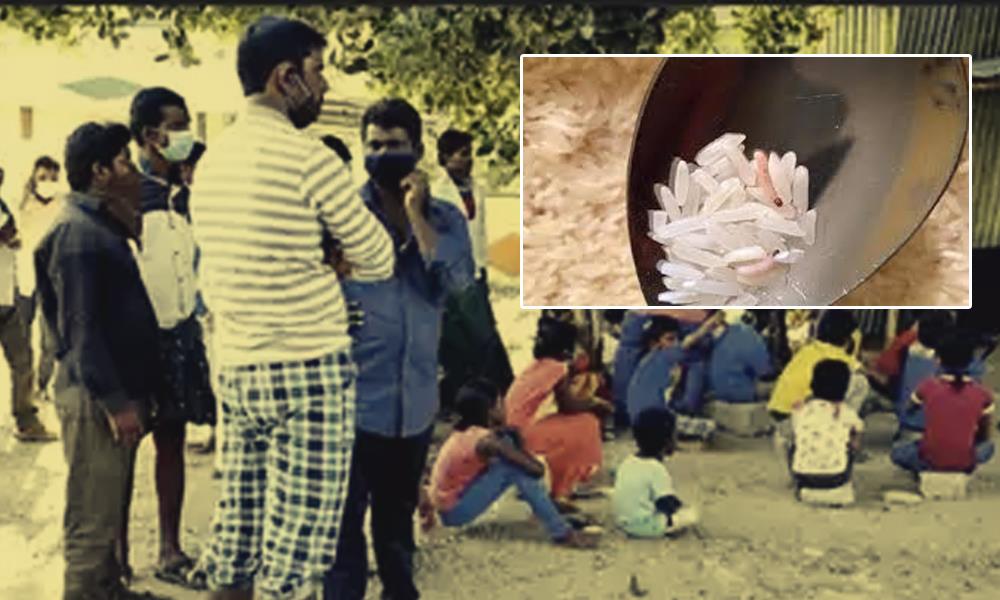
Representational Image
Migrant Workers In Mangaluru Served Rotten, Decaying Rice As 'Free Ration'
Writer: Navya Singh
Navya writes and speaks about matters that often do not come out or doesn’t see daylight. Defense and economy of the country is of special interest to her and a lot of her content revolves around that.
Karnataka, 15 May 2020 2:32 PM GMT | Updated 15 May 2020 3:31 PM GMT
Creatives : Abhishek M
" An engineer by profession, Abhishek is the creative producer of the team, graphic designing is his passion and travelling his get away. In more ways than one, he makes the content visually appealing."
Several workers claimed that the rice was spoilt to an extent that it was unfit for animals consumption.
In an appalling incident, migrant workers stranded in Karnataka's Mangaluru were given rice that was rotten and unfit for human consumption.
The Labour Department had distributed rice bags a few days ago when the migrant labourers held a protest near MRPL urging the authorities to make travel arrangements for them to send them back to their native states.
Democratic Youth Federation of India (DYFI) state president Muneer Katipalla said that the 5-kilo rice bags were given in a bid to pacify the protestors so that they withdraw the protest.
When the labourers checked the bags after returning back, they found it to be rotten. Workers claimed that the rice was spoilt to the extent that it was unfit for animal consumption.
They are migrant workers all right !! They are poor too !! But this is what our @BSYBJP gave to them as ration RICE !!!
— Augustine Varkey (@logicalindianz) May 14, 2020
Those who are angry please RT !!! pic.twitter.com/JrS3IwOA9i
Additional Deputy Commissioner MK Roopa denied distributing spoilt rice."If you want, I will take you to the godown and show you. Around 500 bags are still there," she said.
Migrant workers have been affected the most since the nationwide lockdown was imposed. Restrictions on transport facilities, inadequate arrangements and lack of employment have forced the workers to walk thousands of kilometres to reach their native states.
 All section
All section














